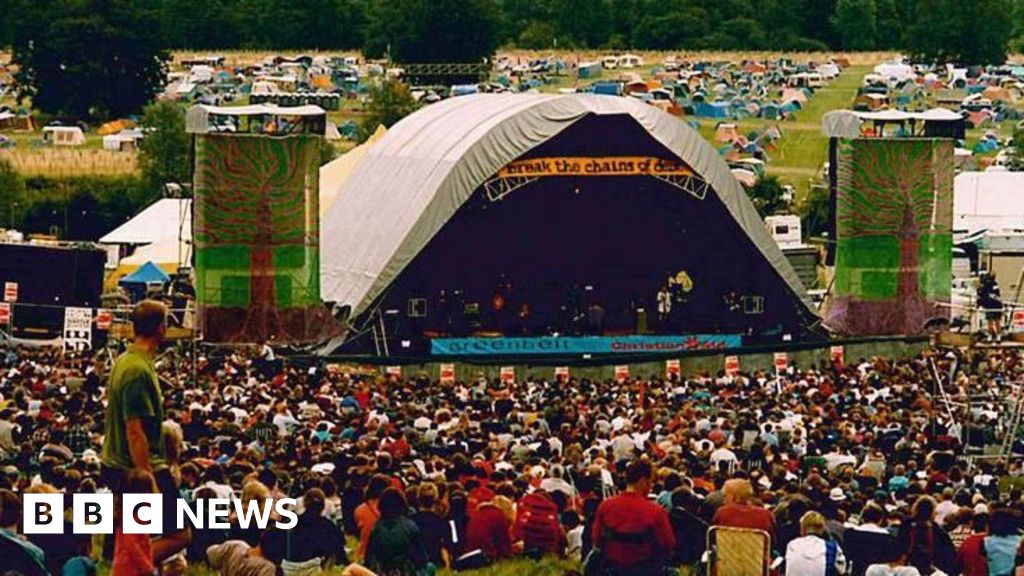Introduction to Greenbelt
Greenbelt, the art, faith, and justice festival, has been a significant event in the UK for over 50 years. It started in 1974 and has been held in various locations, including stately homes and racecourses. This year, the festival will take place at the Boughton House near Kettering in Northamptonshire, featuring guests such as Jeremy Corbyn and Liz Carr.
A Random Encounter
The story of Greenbelt began with a chance meeting between James Holloway, a theologian and bricklayer, and Steve Shaw, a Christian musician. Holloway introduced Shaw to Jim Polassari, part of a traveling Christian community that wanted to organize a Jesus festival. Shaw knew someone in Suffolk whose brother had a farm, and Polassari replied, "If you have a farm, you have a festival." The first Greenbelt took place in 1974 on the Prospect Farm in Suffolk, featuring the songwriter Garth Hewitt and the music journalist Steve Turner.
Famous Musicians at Greenbelt
Over the years, Greenbelt has hosted many famous musicians, including Christian artists like Amy Grant and Sir Cliff Richard, as well as non-Christian artists like Bob Geldof and Labi Siffre. In 1979, Sir Cliff Richard performed at the festival, which was held at Odell Castle near Bedford. He agreed to play after several invitations had been rejected, on the condition that he could play his secular hits and worship music. Other notable performers at Greenbelt include U2, Rick Parfitt, and Phil Everly.
Greenbelt in Northamptonshire
In 1984, Greenbelt moved to Castle Ashby in Northamptonshire, where it stayed for almost a decade. The festival featured a range of musicians, including Christian artists like Ladysmith Black Mambazo and non-Christian artists like Runrig and Steve Harley. However, the cost of converting Castle Ashby into a functioning village every year became a headache for the Greenbelt team. They eventually opted for Cheltenham RaceCourse, which offered better facilities and infrastructure.
Challenges and Changes
In the 1990s, Greenbelt faced financial challenges and a decline in attendance. The festival moved to Deene Park in Northamptonshire, but the cost of hosting the event became too high. In 1999, Greenbelt moved to Cheltenham RaceCourse, which provided better facilities and infrastructure. However, in 2013, the racing company informed Greenbelt that they would be closing due to renovation, and the festival could no longer take place there.
Greenbelt Today
After a few years of struggling to find a new location, Greenbelt returned to a stately home in 2014. The first year was difficult, and the festival lost a lot of money. However, the team concentrated on their priorities, collected money, and gradually attracted more people. The festival visitors loved the new venue and preferred the "back to nature" feel of the place. In 2020, Greenbelt was forced to go digital due to the COVID-19 pandemic, but it has since bounced back, attracting over 10,000 people and featuring big names like Pussy Riot, Gordon Brown, and Milton Jones.
Looking to the Future
Greenbelt has introduced a flexible ticketing system to make the festival more accessible to people of all incomes. The system allows those who cannot afford the full price to pay a lower rate, while those who can afford to pay more can do so. With a range of exciting guests lined up for 2025, including Jeremy Corbyn, Liz Carr, and Lost Voice Guy, Greenbelt is looking forward to another successful year. Despite the challenges it has faced over the years, the festival remains committed to its values of art, faith, and justice, and continues to be a unique and inspiring event in the UK festival scene.

